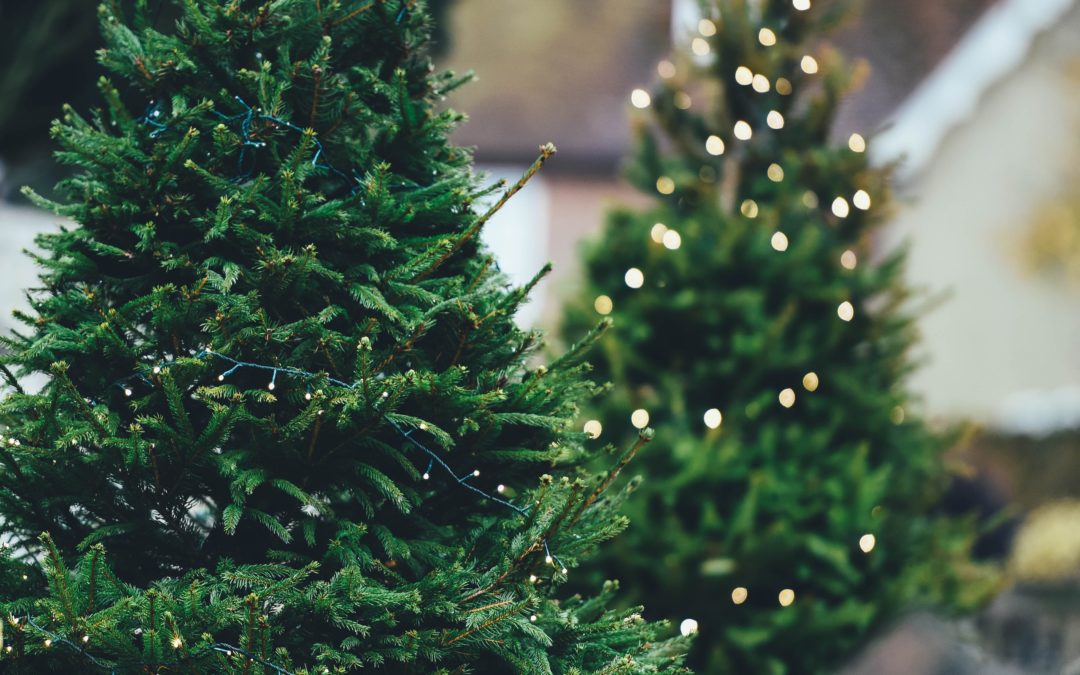Choosing from the huge selection of different types of Christmas trees can feel like an overwhelming task. The last thing you want during the busy holiday season is to worry about picking the right type of tree. Certain tree species are better for heavy ornaments, while others offer good needle retention. From the Colorado Blue spruce to the White pine and Douglas fir, selecting the right Christmas tree can be easy when you know a few facts.
Three Most Common Types of Christmas Trees
In the United States, the three most common and popular tree types for the holiday season are:
- Firs
- Pines
- Spruces
Each of these main tree types have their own varieties with distinct qualities. In addition to firs, pines, and spruces, you also may find cypress and cedar trees offer options as well.
Firs
For the home or business office Christmas tree, firs can offer the greatest variety. According to the National Christmas Tree Association, types to consider include:
- Balsam fir
- Douglas fir
- Fraser fir
- Noble fir
- Grand fir
- Canaan fir
- White fir or Concolor fir
Both the Balsam and Douglas fir trees have excellent needles retention when kept watered. These are two of the most popular choices for Christmas trees and are found throughout the country. With soft, light-green needles, it’s best to hang only lighter-weight ornaments on the Douglas fir.
The Fraser fir has a stronger scent, blue-green needles, and is a bit sturdier, better for heavier ornaments, while the Noble fir has dark green needles, a strong fragrance, and sturdy branches for all ornaments. The Grand fir is a native tree of Northern California and the Pacific Northwest. It’s a large tree, hence its name and it features needles that are yellow-green.
The Canaan fir is similar to the Douglas and Balsam. It has great needle retention and a mild scent, which makes it a good choice for a variety of homes. The distinctive White fir isn’t actually white and it’s also called the Concolor fir. It has beautiful bluish green needle-leaves.
Pines
White, Scotch, and Virginia pine trees are common tree types for holiday decorating. The White pine has a bluish green color similar to the Concolor fir. However, the White pine features almost no scent and branches that are flexible — a good choice when decorating with its boughs. It’s not recommended to choose a White pine if you plan to hang heavy ornaments as its branches are not as strong as other tree types.
The Scotch pine or Scots pine offers excellent needle retention, which can mean less clean up during and after the holiday season. This national tree of Scotland features dark green hues and ample branches able to hold all types of decorations.
The Virginia pine is a medium to small tree, ideal for more intimate spaces. The more petite branches trim easily and look stunning with a range of décor styles. It has a mild aroma, just enough to fill the home with the scent of Christmas.
Spruces
The Norway spruce, Colorado Blue spruce, and White spruce all grow in colder climates. The Norway spruce, according to The Telegraph UK is the “traditional British Christmas tree which has been popular since Victorian times. The bright green Norway Spruce has a lovely scent but quickly drops its dense, spiky needles.” This tree requires regular watering to help with its needle retention.
The Colorado Blue spruce has stunning silvery-blue needles and a great scent. It’s native to the Rocky Mountains and often has a picture-perfect Christmas tree shape. The White spruce or Canadian spruce can grow very tall, more than a 125 feet. It has blue green needle-leaves that easily handle ornaments and lights.

